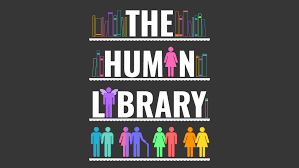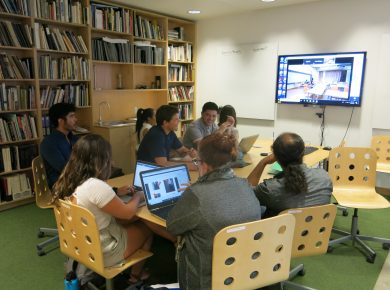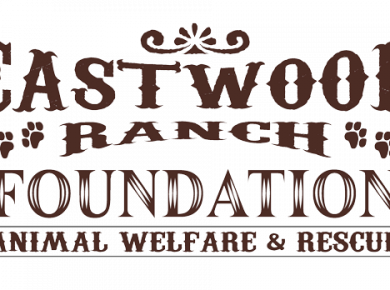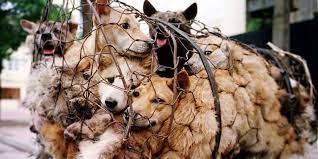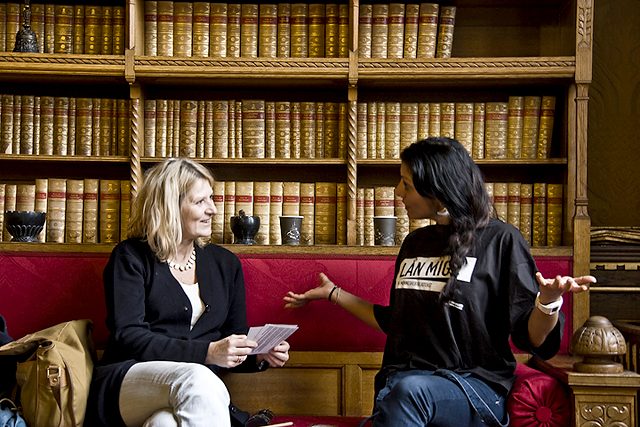
Challenging stereotypes: the ‘Rapper’ (right) in conversation with a reader at a Human Library, Copenhagen, 2000. Picture: Human Library.
If a play could be that powerful, imagine what meeting one of the camp’s residents might be like; what assumptions might be shattered, what realities brought forth. This – the idea of dialogue between people of different creeds – is the aim of the Human Library, a global not-for-project in which the ‘books’ are people, each with powerful experiences of exclusion and difference.
Launched by brothers Ronni and Dany Abergel, founders of Stop the Violence, the first Library took place at the Roskilde Festival in 2000. Since then, Human Libraries have been held in over 80 countries, from South Africa to Tunisia, from Russia to Australia, in libraries and pubs, in social centres and universities; with NGOs, as part of diversity programmes.
The set-up is straightforward: readers – either passing trade or active seekers – are presented with a list of the ‘books’ available. They choose one and then spend thirty minutes, listening to their story, asking questions, in dialogue. Often, ‘books’ are multi-dimensional. Take out Austistic, for example, and you might encounter someone who’s also gay. Titles include any category of person who has experienced prejudice; from Deafblind to Muslim, from Molested and Refugee, from Single Mother to Body Mod Extreme. Titles are current; when you borrow Homelessness in the library, that person is really homeless.
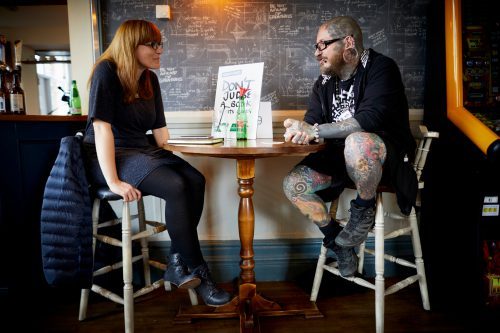
“You’ll never get debate and progress unless you’re willing to meet your detractors.” Extreme Body Mod meets reader. Picture: Human Library.
The ‘books’ themselves have become a powerful community of advocates. “[The Library] is a wonderful place to bring together people who have been overlooked or who have experienced prejudice,” says one book, Katy Jon Went (title: Bipolar but also transgender, asexual, a suicide survivor and a former fundamentalist Christian).
“[The books] are survivors,” she continues. “They’ve have found ways to overcome oppression, objectification, isolation. And while some may still be experiencing those, they’re willing to encounter the general public. To become a book, you have to develop mental health and social skills.”.
As in a real library, selection is personal but readers are encouraged to pick titles that challenge them. “The point is that you choose the book you least want to read,” says Katy. “I remember one reader said to me, ‘I took your title out because I disagree with your lifestyle choice’. I said, ‘well, I wouldn’t call it a lifestyle choice but let’s talk about this.’ You’ll never get debate and progress, you’ll never change people’s minds, unless you’re willing to meet your detractors.”
Participating in the library emphasises the multiple aspects of discrimination, shining light on individuals and the realities behind every stereotype. Last year, the Library held an event at the Wilderness Festival as part of Heineken’s #OpenYourWorld campaign. “The readers there were beautiful people with money in Hunter wellies,” says Katy. “So I was were thinking, these aren’t people experiencing oppression – other than against well-heeled Tories! But then they’d say to me, ‘oh, my dad is schizophrenic’ or ‘depression runs in my family’. I realised that oppression doesn’t care about privilege or upbringing.”
‘Books’ discover almost as much as readers. Katy remembers an evening during the Heineken tour, when the ‘books’ found themselves in an end-of-terrace pub in Edinburgh. “The punters didn’t know what was happening till they saw the library check-in desk and a bunch of books in the corner,” she laughs.

Titles include any and every category of person who has experienced prejudice or difference. Picture: Human Library.
One of the books – a Muslim, originally from Iraq – had flown in from Denmark. “A group took her out and were astonished to find, firstly, that she drank and smoked and, secondly, that she wasn’t wearing a head scarf,” recalls Katy. The ‘book’, in turn, heard about tribal rivalries in the city: of Celtic vs Rangers, of Catholic vs Protestant and was able to compare them to the conflict between Sunni and Shia Muslim in Iraq. “In the end, both sides were discovering things about tribal differences that they hadn’t known before,” says Katy. “It just wasn’t the conversation you could imagine happening in the middle of a pub.”
To keep books safe, librarians have copies of library rules. “They’re couched in librarian terminology,” says Katy. “Like ‘please return the book in the condition you took it out’, ‘please don’t take the books home’, ‘please don’t tear or bend the pages’.”
Libraries are placed where difficult questions are expected, appreciated and answered but moments of profound ideological disagreement are rare, diffused by the very nature of the Library itself. This is the core of its existence: put someone face-to-face with another human being, even one they ostensibly have nothing in common with, and everything is possible. Katy agrees: “You take someone off the street, like a far right nationalist, and put them in a human library situation, reading an immigrant book, and once they’re away from the tribe dynamic on the street, a lot of their prejudice begins to change.”
